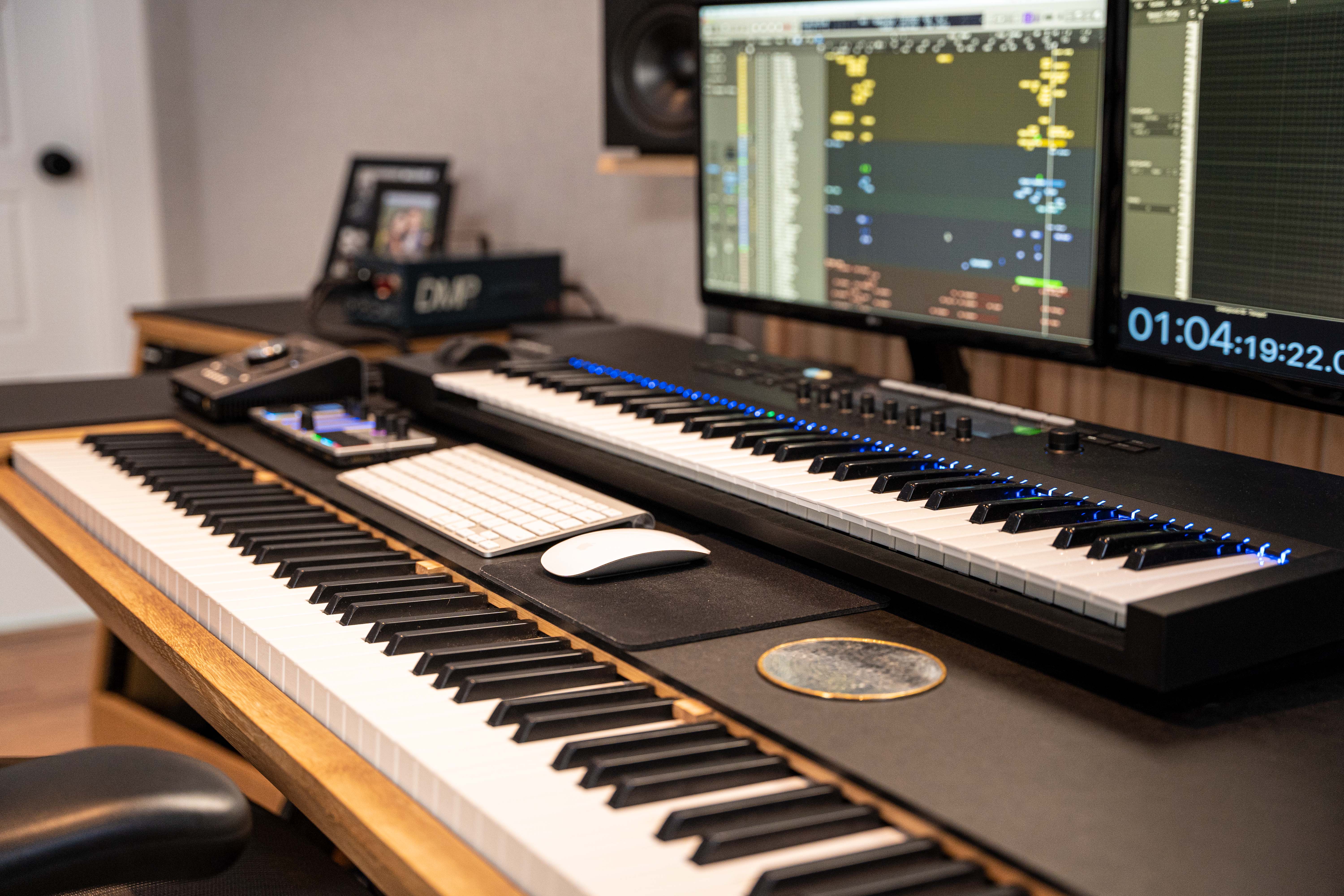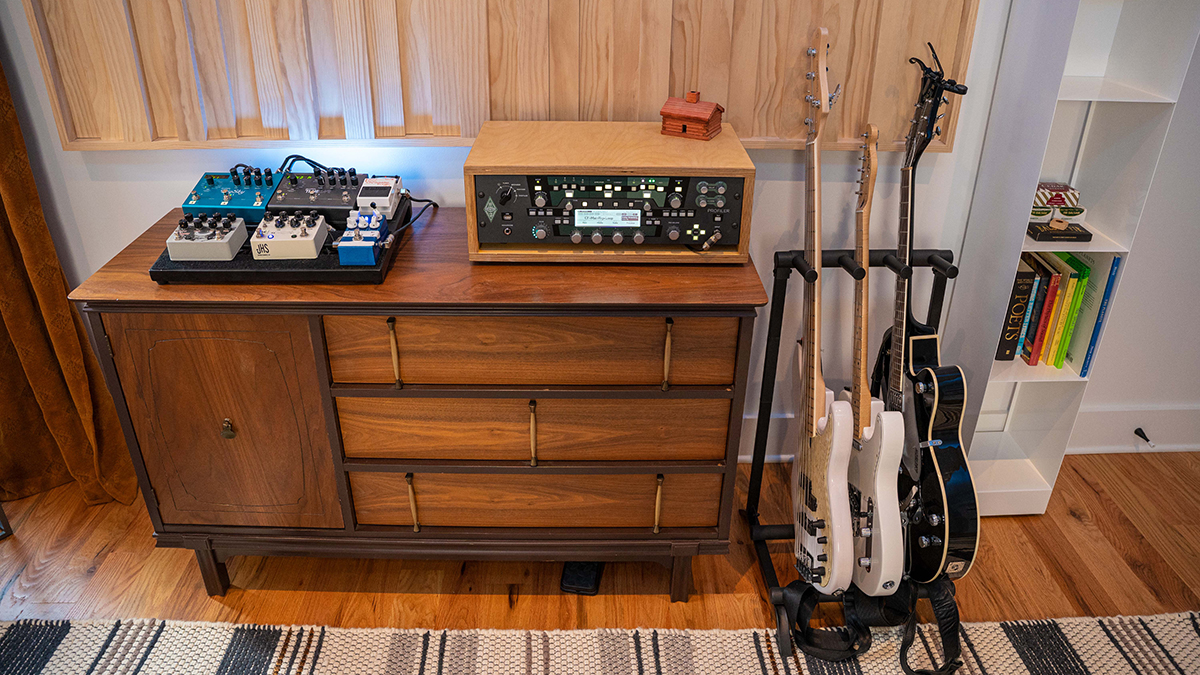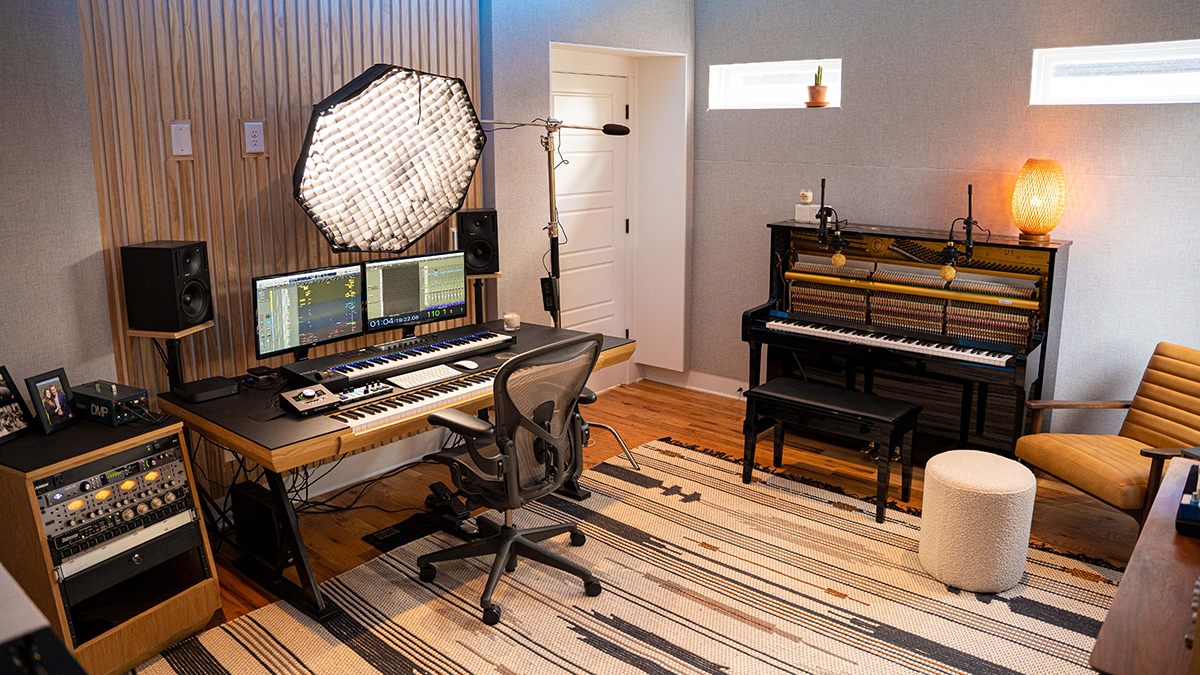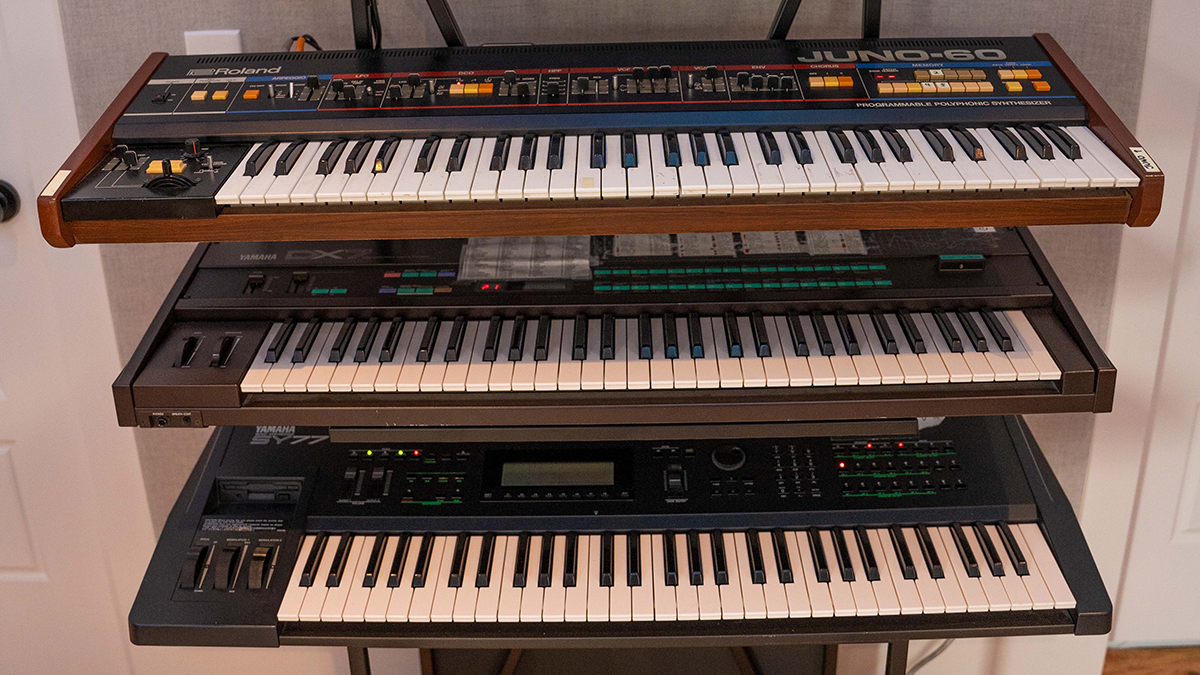Cody Fry on his Symphony Sessions: “I’ve always loved Eleanor Rigby - ever since I analysed its lyrics way back in fifth grade”
After his track I Hear A Symphony went viral on TikTok, songwriter and orchestrator Cody Fry felt compelled to pursue a longstanding ambition - to build a collection of huge-sounding, orchestra-backed tracks

There’s no question that the music listening landscape has shifted on its axis during the last decade, with more and more streaming platforms revolutionising how we discover new music.
Those ‘big’ songs artists might earmark as singles can sink without trace, while deep cut album tracks unexpectedly take off, granting a whole new lease of life with exposure via adverts, memes or viral social media uplift.
That’s pretty much precisely what happened to Nashville-based songwriter and orchestrator Cody Fry. His track I Hear a Symphony exploded as a viral sensation on TikTok, leading to an influx of new listeners, royalties and thus the chance to embark upon a project he’d always hungered to make - a big symphonic record.
“It kind of launched a whole new phase of my career really,” Fry tells us. “I kind of got the chance to choose my next project off the back of the TikTok success of that song.
“As the name would suggest, I Hear a Symphony had a lot of orchestral elements. It’s kind of one of those songs where I didn’t think anybody would like it. But I was so encouraged to find out that people eventually did. It gave me the push that I needed to lean more into orchestral stuff. I really love doing it, but just thought it wasn’t commercially viable. It turns out it actually is.”
Cinemascope
The son of world-renowned composer Gary Fry, Cody’s interest in music began as a child. He was in thrall to both his dad’s work and the sound of the big screen greats: “I loved John Williams and Hans Zimmer and all of the major players of film composing,” Cody explains. “My dad had a recording studio in the house growing up, with this amazing synth and sampling system called the Synclavier. It was like an original iteration of a DAW. But this thing was the size of a house! It used audio cards and that kind of stuff.”
Fry admits that this kind of technological access at a young age was akin to winning the lottery: “I was able to go into that room when my dad wasn’t using it. I’d potter around and make my own mini-songs. But I didn’t start writing proper songs in terms of lyrics and melodies until high school.”
Want all the hottest music and gear news, reviews, deals, features and more, direct to your inbox? Sign up here.
Following an appearance on American Idol in his youth (an experience, Fry is quick to point out, that few people remember him for), it was some years down the line that Cody decided to meld his interest in cinematic composing with his songwriting.
“I wondered if there was something cool that I could make if I were to push both the songwriting aspect as well as the film composing aspect as part of the same package. I was trying to create music that isn’t just cinematic as a description, but is literally cinematic.”
While Fry’s three-album discography - including last year’s multihued Pictures of Mountains - has certainly underlined a penchant for grandiose, emotional sweep, his widescreen ambitions have fully crystallised with the upcoming The Symphony Sessions.
Of the tracks released so far, we’ve heard a soul-stirring version of Ben Rector’s heavenly Sailboat and a magisterial take on The Beatles’ Eleanor Rigby, a track that incorporates the vocals of over 500 people, recorded during the pandemic.
“I’ve always loved Eleanor Rigby - ever since I analysed its lyrics way back in fifth grade. During the pandemic the song took on a whole new meaning for me. It just felt so timely. It took me a while to get into gear and do it because it was a mammoth orchestration and arrangement. I wasn’t quite sure if I was going to be able to pull it off.
“But I thought - what a cool thing to have this song that is centred around the theme of loneliness. Then, bring together 500 people to make it. I love that sort of oxymoronic thing where we’re all lonely together. It’s all a little microcosm of what the pandemic felt like. That’s what inspired me to pull the trigger and do it.”
In the room
For Fry, the creative process is a daily journey of discovery. Writing in his home studio, he allows melodies and inspiration to find him.
“Everyone wants to know what the songwriting process is, and if you figure it out tell me because I’m always trying to figure that out. It’s like this mysterious thing, because a lot of the time when I write a great song, I feel like I was just kind of in the room when it happened.
“My inspiration often comes from just listening to music. I wonder if I could try to do things similar to what I’m hearing. If I can create the same or similar emotion.
“My thing right now is to get more chromaticism into pop music. I try to find chord changes that allow me to create melodies that aren’t just like a couple of notes. I try to come up with changes that lead to more chromatic exploration.”
In terms of his orchestrations, Fry begins the process by answering one simple question - just what does this song want?
“You have to figure out whether it even needs an orchestra and just what are the emotional notes that you’re trying to hit. Getting into the nitty gritty of my actual process, it’s one of two things. I’m either writing in a DAW like Logic and using sample libraries to kind of create a rough orchestration. Or, I’m in Finale using notation and notating the arrangement as I go.”

“I probably use Logic more often,” Cody admits. “I’ve found that it gives you such an immediate feedback on the ‘is this the right emotion?’ question. With human players, everything will sound a lot better of course, but sometimes, it’s hard to imagine in your head how these things work together. That’s one of the most important things for me - making sure we’re hitting those emotional beats.”
Cody’s certainly got a sizable arsenal with which he can do that. “In my keyboard stack I’ve got a Moog Sub 37, a Roland Juno-60, a Yamaha DX7 then this really interesting Yamaha synth called an SY-77 which I think is actually even better than the DX7 and nobody really knows it. I love it.”
In the corner sits a Yamaha U1 upright piano, with a felt practice pad always on, something that Cody insists is central to his piano sound. Elsewhere, a Fender Telecaster is at the centre of a rack full of guitars, gathered around a Kemper profiling amp. On Fry’s custom-made desk there’s an in-built piano, while a Native Instruments Komplete Kontrol MIDI keyboard allows for interaction with a raft of software.

“I’m obsessed with the Spitfire libraries. I’ve got so many and I really need to stop buying them, but they’re great. I use mainly their Spitfire Symphonic Orchestra which is Brass, Woodwinds, Strings and Percussion.
“I also use Spitfire Studio Strings a lot. I love how they have these smaller groupings of strings, like you can have four violins ensembles for pop orchestration; they have them to hand. I also use old Vienna Symphonic Library samples which are great. They are totally dry. It’s a totally different feel to have a dry sample. It makes it feel a lot more poppy.”
I hear a symphony
With the upcoming release of The Symphony Sessions, Fry hopes that those who’ve discovered him via TikTok might develop a much deeper appreciation of the orchestra, and also uncover some of the gems in his rich back catalogue, such as the sublime Underground from his first record audio:cinema, or the hip funk of last year’s Thinking About You.
“I love the orchestra. I love music education, I think it’s so valuable. Kids who are learning orchestral instruments might look around at the pop landscape and not see any of their instruments represented. So, I want to change that. I want to create music that a third grader who wants to play the trumpet thinks ‘hey I could play along with that, that could be fun’. I feel like people forget what it feels like to watch 50 to 70 people make the same piece of art at the same time. It’s so powerful.”
Fry is on a mission, then, but it’s one that channels this newfound exposure into an aim we can really get on board with - to experience the heart-stopping magic of an orchestra in full-flight.
“I guess some people might think that, because it doesn’t have all the lights or the 120db speakers, it can’t be entertaining. But the range of emotions that people can get from an orchestra can be stunning. I just want people to experience that.”
Find out more about Cody Fry and The Symphony Sessions.





I'm Andy, the Music-Making Ed here at MusicRadar. My work explores both the inner-workings of how music is made, and frequently digs into the history and development of popular music.
Previously the editor of Computer Music, my career has included editing MusicTech magazine and website and writing about music-making and listening for titles such as NME, Classic Pop, Audio Media International, Guitar.com and Uncut.
When I'm not writing about music, I'm making it. I release tracks under the name ALP.